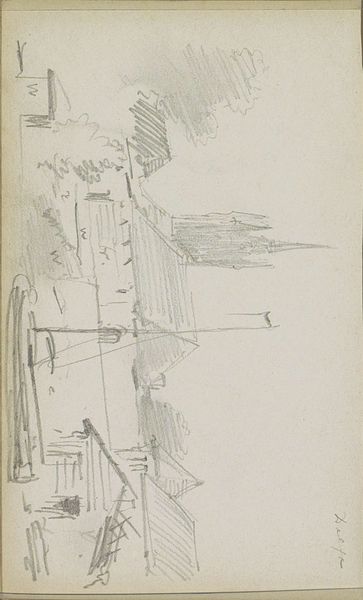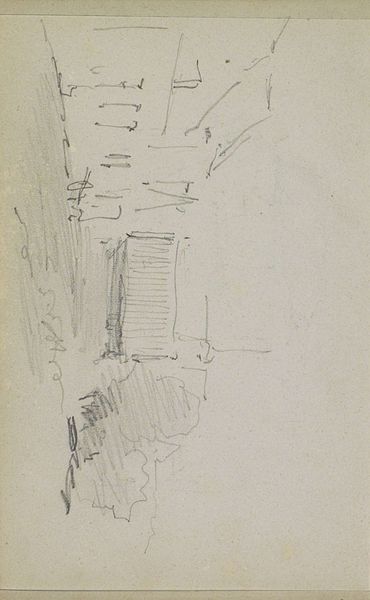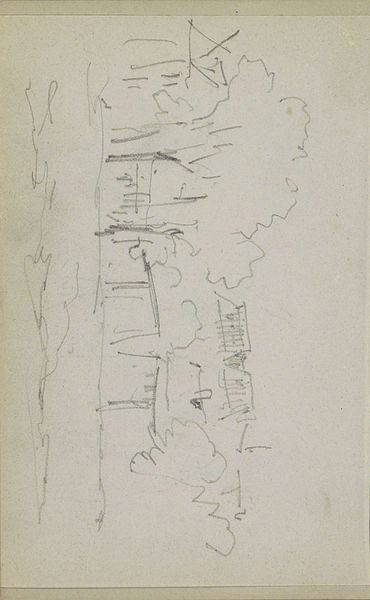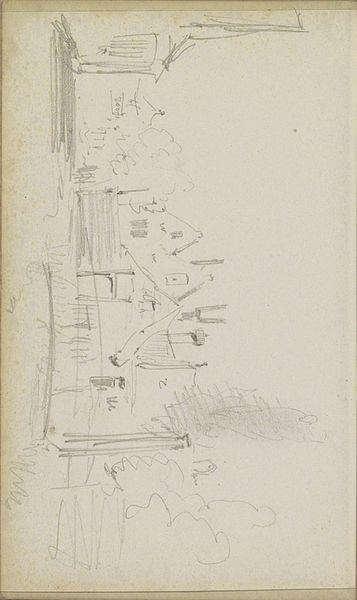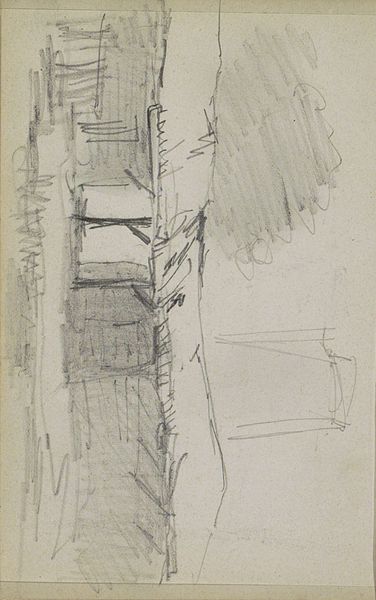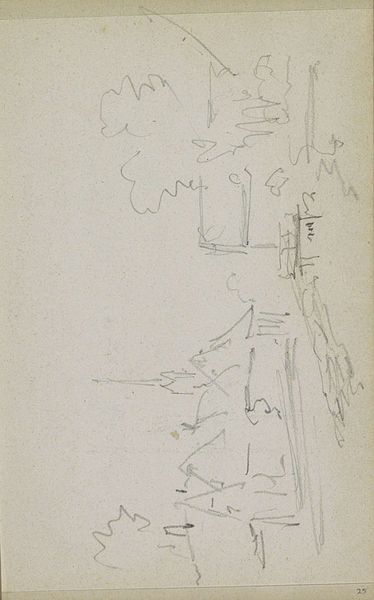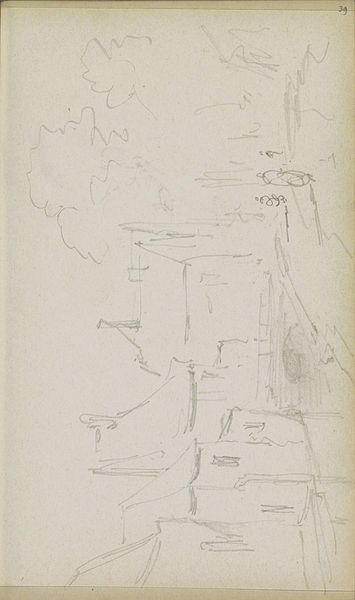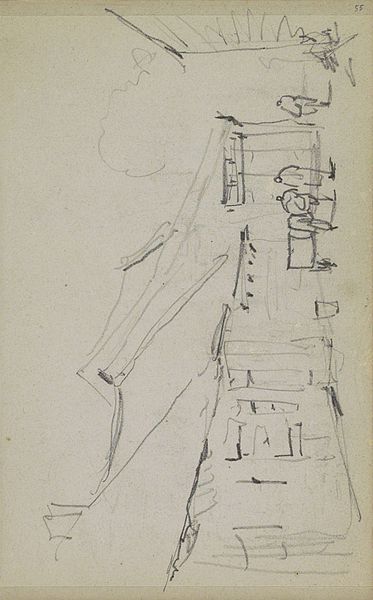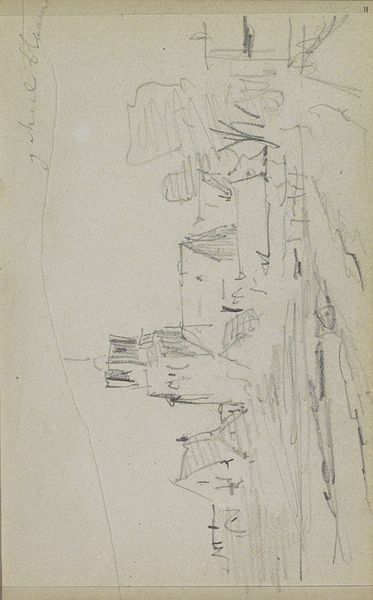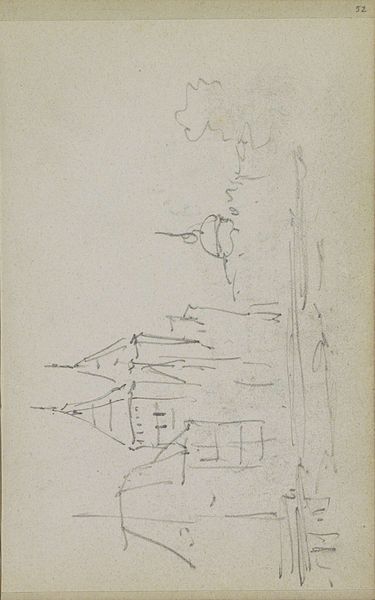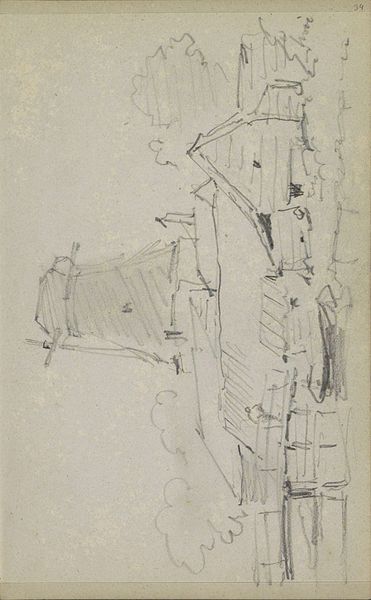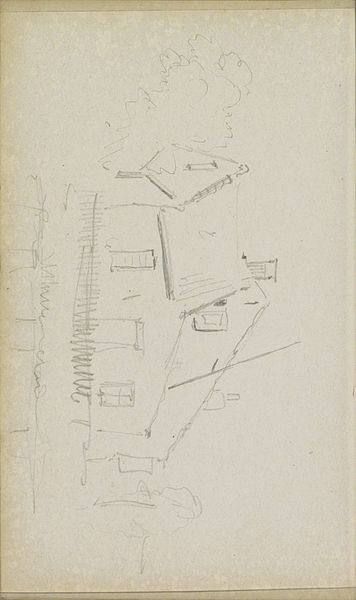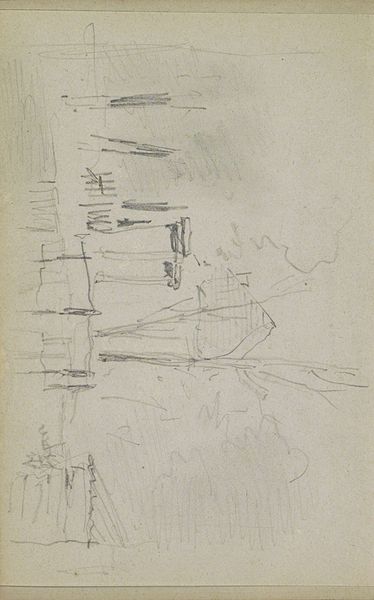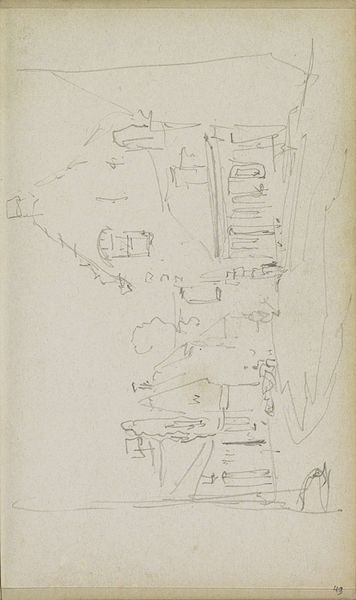
drawing, paper, pencil
#
drawing
#
amateur sketch
#
quirky sketch
#
dutch-golden-age
#
incomplete sketchy
#
landscape
#
paper
#
personal sketchbook
#
idea generation sketch
#
sketchwork
#
detailed observational sketch
#
pencil
#
sketchbook drawing
#
sketchbook art
#
realism
#
initial sketch
Copyright: Rijks Museum: Open Domain
Curator: Here we have Adrianus Eversen's "Gezicht op een huis," or "View of a House," a pencil drawing on paper, thought to be from sometime between 1828 and 1897. It looks like something pulled right from the artist’s personal sketchbook. Editor: My first impression? A whisper of a building, half-formed memories etched in pencil. There’s something incredibly intimate about it. It feels like a fleeting observation captured just before the moment disappears. Curator: Exactly! It has a raw, unpolished quality that speaks to the immediacy of the artist’s vision. You can almost feel him working through ideas, refining shapes, deciding what to emphasize and what to leave implied. This drawing’s power really comes from the energy of that initial impulse. It has such spontaneity. Editor: And it speaks to larger dialogues about urbanization, no? Who has access to housing, who gets represented in art – or not. The loose sketch style invites you in. Is this the neighborhood being forgotten? Is that why the rendering is unfinished? Are the resources unevenly distributed, therefore preventing further material execution of this project? Curator: That’s fascinating—to consider this artwork from such angles. I have been admiring the textures here – the soft smudges of the pencil, the sharp, decisive lines that define the architectural details. See how Eversen contrasts these rough textures with areas of open space, creating a sense of depth and atmosphere, adding just those essential details. It suggests that you fill in the rest, and, as you mentioned, what is there *to* fill in? Editor: Right. It could serve as an implicit commentary, suggesting how much vision gets abandoned due to lack of support. From a feminist perspective, how are women and their domestic sphere rendered visible, or rendered invisible? What about queer bodies in the context of privacy versus surveillance in public and private space? Curator: Ah, interesting points! Well, regardless, there’s an undeniably authentic quality to this sketch. You’re getting right inside the artist’s observational processes. Editor: It does leave you contemplating untold stories, the intersections of public and private. Makes me wish I had *my* sketchbook handy.
Comments
No comments
Be the first to comment and join the conversation on the ultimate creative platform.
